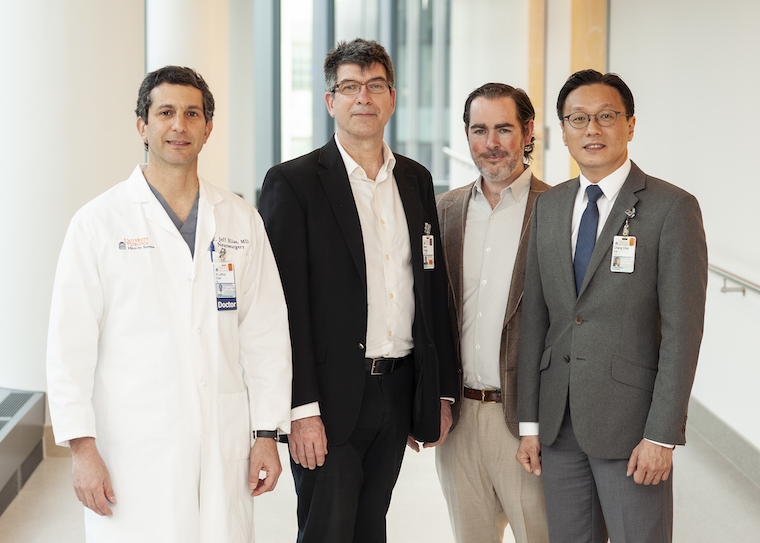We've assembled a crack team of experts to develop a new way to relieve chronic pain that does not respond to medication, and the National Institutes of Health has generously provided the researchers more than $5 million to do it.
The multidisciplinary team consists of neurosurgeon Jeff Elias, MD; clinical psychologist Patrick Finan, PhD; electrophysiologist Chang-Chia “Jeff” Liu, PhD; and Mark Quigg, MD, the director of UVA’s Electroencephalogram and Evoked Potential Lab.
The team will seek to optimize a "neuromodulation" technique called deep brain stimulation (DBS) to relieve chronic neuropathy (nerve) pain that doesn't respond to medication. Early findings suggest that a region of the brain called the insula plays an important role in our perception of pain, and the researchers believe that targeting this region with DBS could offer relief.
The research could also shed light on the fundamental nature of pain itself. The team will monitor brain activity in study participants, allowing the researchers to distinguish, for the first time, between brain signals when a patient is in pain versus when the patient is not.
Using the NIH funding, our pain researchers will launch a clinical trial in 12 patient volunteers with refractory (meaning treatment-resistant) neuropathic pain. The researchers will map the volunteers’ brains and stimulate sections of the insula to see if DBS provides the desired pain relief.
Participants who benefit will move into a randomized, double-blinded clinical trial. This trial will implant electrodes along the insula to see if DBS can provide ongoing relief.
Let's wish the researchers luck. It would be great to have a new option for appropriate patients who can't otherwise get relief.
